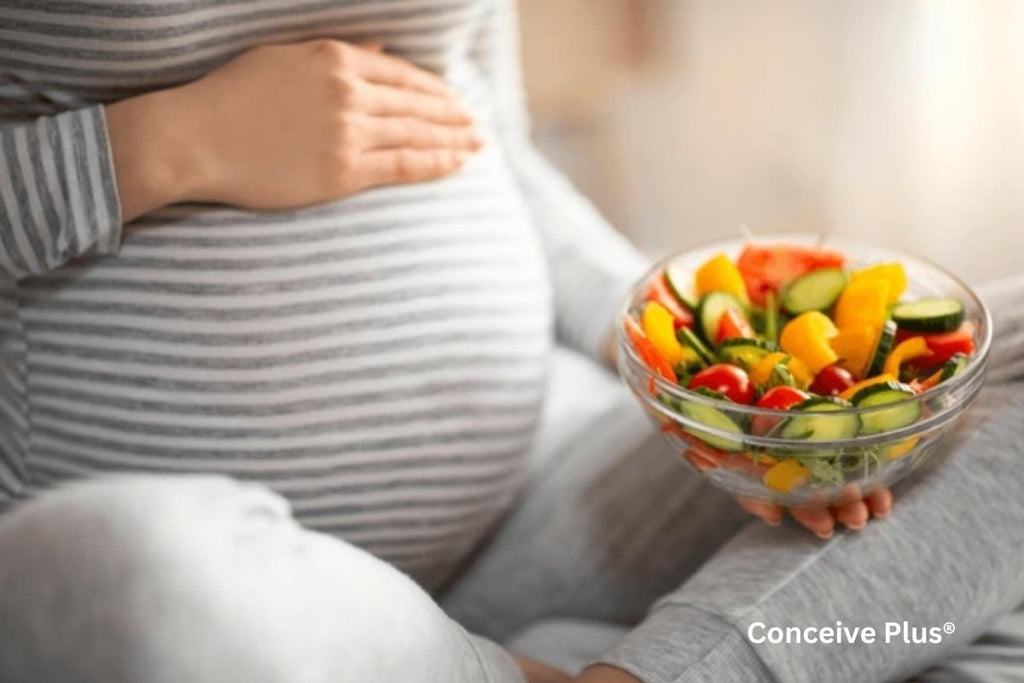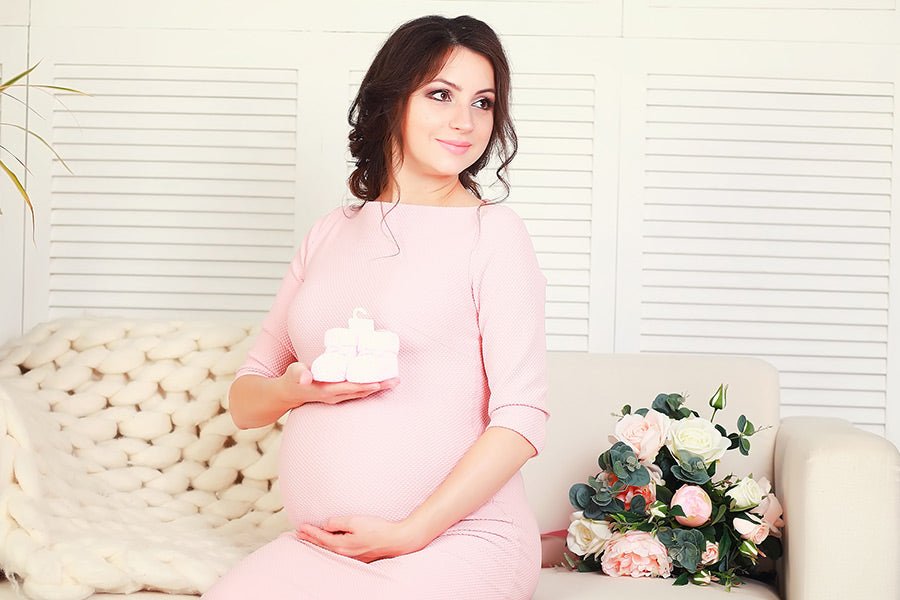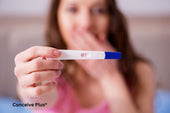I Need to Get Pregnant This Month Tips on Sex Frequency and Odds

Sometimes we get this intense feeling of, I need to get pregnant this month! It can really weigh on your mind, especially if you’ve been hoping to have a child for a while. But is it as simple as just having more intimacy? Or maybe there's some hidden trick people use? The journey may feel a bit overwhelming, which is totally normal. Let’s explore crucial ideas, from how to recognize prime fertility times to the roles of nutrients and lifestyle changes. We’ll also talk about what to do if you get stuck asking yourself things like why am I not getting pregnant or is it hard to get pregnant even if everything appears okay. The hope is to help you see that while you can’t force results, you can take real steps to improve your odds of getting pregnant in a balanced, stress-free way.
Understanding Fertility Basics
If you’re thinking about conceiving, it’s key to know how it all works. Your menstrual cycle basically sets the stage. Typically, if you’re on a 28-day cycle, ovulation might occur around day 14, but it can definitely vary. Once an egg releases from the ovary, it hangs around for only about a day or so. On the other hand, sperm can live in the female reproductive tract for several days. This is kinda why timing is so crucial. Many women getting pregnant successfully find that understanding their fertile window and maintaining a healthy lifestyle significantly boosts their chances of conception [1]. A lot of people wonder how hard is it to get pregnant if they always miss that fertile window. To be honest, it may not be that easy.
When couples focus on the time around ovulation, they can increase the odds of pregnancy. But that doesn’t mean it will happen instantly. Some couples get it right quickly, leaving others to ask, “is getting pregnant on the first try a good sign?” It might be luck or just good timing. Don’t panic if it doesn’t happen that fast.
Take a calendar, note your cycle length, and watch for signs like a change in cervical mucus. If the fluid becomes clearer and more elastic, that’s typically a sign of ovulation. Temperature tracking also helps, if you have the patience for it. Meanwhile, try to keep an open mind, especially when you’re dealing with the question, is it hard to get pregnant when life and stress get in the way.
How Often to Have Intimacy
It’s normal to wonder, how many times sex to get pregnant? Some folks try daily intimacy. Others do it once or twice a week. There’s no single rule. In fact, many wonder if having sex every day to get pregnant gives them better chances. It can, but daily efforts might get tiring for some partners. Others fret that maybe that’s “too much.”
Doctors often advise that every two or three days is a good general approach. That schedule keeps sperm supply fresh enough without turning things into a chore. Another tricky question is: how many times should I have sex to get pregnant if you’re newly trying? There’s no exact number. Some do well with frequent contact, while others prefer moderate frequency.
If you feel super energetic, you can. But watch out: you don’t want intercourse to become mechanical. Stress can throw hormones out of whack [2]. It’s also good to remember the possibility of conceiving is tied to timing, so you might want to aim for those fertile days.
Daily or Alternate Days?
Couples often debate if it’s best to go for sex every day or every other day during fertile window. Some folks want to do it daily if they suspect ovulation is near, but not everyone is comfortable with that pace. There's also a question that crops up: is having sex everyday bad when trying to conceive? It’s not automatically bad, as many partners maintain healthy sperm counts even with daily intercourse [3].
On the flip side, there's also sex every other day to conceive. This approach suits those who find daily contact too tiring or stressful. Trying to see which pattern works for you is essential. If you want daily, that’s fine. If skipping a day keeps you and your partner feeling closer and less worn out, that can be good too. The reality is, no single formula will guarantee success.
Tracking Ovulation
Anyone who wonders how often should I have sex to get pregnant needs some sense of when ovulation happens. You can watch for that slippery egg-white-like mucus or use ovulation prediction kits. Some folks also measure basal body temperature each morning. The day after ovulation, your temperature might jump slightly.
There’s also the question of how many times to intercourse to get pregnant or how many times we have to sex to get pregnant if you pinpoint ovulation precisely. You might not need constant daily contact. Sperm can survive for a handful of days [4]. So if you time intercourse a day or two before ovulation, plus maybe on the actual ovulation day, your odds of conception might be pretty decent. Don’t worry if you can’t be 100% exact. Bodies can be unpredictable.
Is It Difficult to Conceive?
One big query is, why cant I get pregnant even when you do the “right” stuff. Another is, why am I not getting pregnant if you’re timing things well and your doctor says everything’s normal. For some couples, it just takes time, which can bring up the question, why am I not getting pregnant when everything is normal. Could be hormonal nuances or minor hidden issues that routine tests don’t catch easily.
How hard is it to get pregnant truly? Some couples conceive within a few months, others might need closer to a year [5]. There’s no universal timeline. Then you see people saying, “is getting pregnant on the first try a good sign for a healthy future?” Possibly, but it’s more about overall fertility alignment than any guaranteed outlook.
Try to keep expectations realistic. The average couple might not conceive right away. If you’re older or have known health concerns, you might want to check with a specialist after several months of no success. Sometimes a real reason for not getting pregnant when everything is normal might not show up until you do more testing. Women looking to get pregnant should also focus on maintaining a healthy lifestyle, tracking ovulation, and consulting a doctor if conception takes longer than expected.
Nutrients and Ingredients That May Support Fertility
Some folks focus on vitamins, minerals, and other substances that might help. You’ll see people talk a lot about folic acid, which helps prevent certain birth defects and can aid early fetal growth. Other examples are Myo-Inositol and D-Chiro Inositol, good for people who struggle with insulin issues or PCOS. CoQ10 is popular, too, because it’s an antioxidant that might help egg quality [6].
We also see talk of vitamins like C, E, and the entire B family. They support general cellular health, hormone function, or energy production. Ginger might soothe inflammation. Iron is essential for oxygen transport in your blood. Zinc is big for sperm health, plus it supports hormone balance in both genders. Then there’s magnesium, which helps with hormone regulation, and calcium that supports muscle and nerve function. Selenium has antioxidant powers, while iodine helps keep the thyroid in check. L-Arginine can improve blood flow, and taurine helps reduce stress [7].
Herbal extracts like maca root or ginseng sometimes appear in men’s fertility formulas to boost libido and sperm quality. Withania Somnifera (Ashwagandha) is widely used as an adaptogen. Also, healthy fats like DHA from fish oil can be beneficial for fetal development. So many couples will try these in an effort to push up their what are the chances of falling pregnant, but results vary.
Lubrication for Support
If dryness or discomfort is an issue, fertility-friendly lubricants might help. Some store-bought lubes are not so kind to sperm. Formulas with calcium and magnesium ions are out there to support sperm movement [8]. People also ask if using these special lubes might raise what is the likelihood of getting pregnant. Maybe a bit. It certainly helps if dryness was the real barrier.
Just double-check labels. A product that claims “fertility-friendly” typically means it doesn’t have harsh chemicals that can harm sperm. If it’s a challenge to enjoy intercourse, a good lube can be a huge relief, especially if you’re pushing for sex everyday to get pregnant around your fertile window.
Men’s Health Matters
We sometimes talk so much about female fertility that we forget men’s health is half the equation. Men may face issues with low sperm count, poor motility, or abnormal shape. That can impact what is the percentage of getting pregnant, because if the sperm can’t swim well or if there aren’t enough of them, fertilization may be harder.
Supplements for men may include zinc, selenium, L-carnitine, maca, and ginseng, among others. Over time, such nutrients might make a difference. But it’s also wise to practice healthy habits like avoiding smoking and heavy drinking [9]. Stress can hurt men’s fertility too. If you or your partner wonder, “when trying to conceive how many times a day do we need to do it,” keep in mind that quality can matter more than sheer quantity.
Considering Frequency and Timing
A key question is how many times to intercourse to get pregnant if your fertility window is uncertain. Another one is, “should I have sex everyday to get pregnant, or is it overkill?” Some folks do daily intimacy for a few days around ovulation. Others prefer “every other day” so the male partner’s sperm can build up. Then you get the question, “is having sex everyday bad when trying to conceive?” Typically it’s fine unless stress levels go up or sperm quality is proven to dip [10].
Think about consistency, but don’t let it become a chore. If you’re exploring sex everyday to get pregnant, pay attention to your emotional and physical comfort. If you’re both up for it, great. If not, maybe shift to every two days. That should still cover your fertile window well enough.
Lifestyle Shifts to Aid Conception
Lifestyle matters more than many realize. Being overweight or underweight can disrupt hormones. Heavy alcohol use and smoking also create big fertility roadblocks. So it’s no surprise that many couples questioning what are the odds of getting pregnant might need to tweak their diets or routines.
Stress, ironically, can hamper fertility a lot. Some people ask, “why am I not getting pregnant even though all tests look normal?” Sometimes you just need better rest, or you may want to reduce extreme workouts [11]. If you keep balance, your cycle might be more predictable, and so might your partner’s sperm count. That can help the odds of conception over time.
Possible Reasons for Delays
So if you can’t conceive, or you keep asking, “why is it so hard to get pregnant?” or “why am I not getting pregnant when everything is normal?” don’t assume you’re doing something wrong. Infertility can have subtle causes, like a minor thyroid imbalance or blocked fallopian tubes. Men might also be the reason in around half of the cases.
The reason for not getting pregnant when everything is normal can sometimes come down to small timing issues. Another possible factor might be mild endometriosis or even uterine fibroids that no one spotted. Or maybe you’ve had chemical pregnancies that ended before you even realized you had conceived [12]. If you suspect a real issue, it’s best to consult a specialist.
The Bottom Line
When that urgency of I need to get pregnant this month appears, it’s easy to feel pressured. But do remember that consistent efforts, a bit of patience, and balanced self-care often pay off in the long run. If you keep questioning why cant I get pregnant or why is it so hard to get pregnant, think about seeing a healthcare provider to rule out hidden issues.
In many cases, the right timing, a dash of healthy living, and maybe certain fertility-friendly nutrients can increase your odds of pregnancy [13]. That’s part of the beauty of it. You can test out changes, see how your body responds, and figure out what’s sustainable. Eventually, your plan might help you achieve that sweet success you’ve been craving, while also keeping stress under control. Understanding what causes pregnancy can also play a crucial role in making informed decisions and optimizing fertility
FAQs
Does having sex daily lower sperm count?
Some men do see a dip if they ejaculate multiple times a day, but once a day usually isn’t a big problem. Everyone’s body is different though.
Can vitamins actually help me get pregnant faster?
They might. Folic acid, iron, zinc, CoQ10, and others can support reproductive health. But they’re no magic solution. A balanced diet and healthy habits still matter a lot.
Should couples always have intercourse on the exact day of ovulation?
Close to ovulation is ideal, but sperm can live several days. If you’re intimate a day or two before ovulation, that may be enough. No need to wait only for a precise day.
How many cycles should I try before worrying about infertility?
General advice suggests about a year if you’re under 35, and maybe six months if you’re older. It’s okay to check with a doctor sooner if you’re concerned.
Citations
- Lynch, C. D., Jackson, L. W., & Buck Louis, G. M. (2006). Estimation of the day-specific probabilities of conception: current state of the knowledge and the relevance for epidemiological research. Paediatric and perinatal epidemiology. Available at: https://pubmed.ncbi.nlm.nih.gov/17061968/
- Louis, G. M., Lum, K. J., Sundaram, R., Chen, Z., Kim, S., Lynch, C. D., Schisterman, E. F., & Pyper, C. (2011). Stress reduces conception probabilities across the fertile window: evidence in support of relaxation. Fertility and sterility. Available at: https://pubmed.ncbi.nlm.nih.gov/20688324/
- Levitas, E., Lunenfeld, E., Weiss, N., Friger, M., Har-Vardi, I., Koifman, A., & Potashnik, G. (2005). Relationship between the duration of sexual abstinence and semen quality: analysis of 9,489 semen samples. Fertility and sterility. Available at: https://pubmed.ncbi.nlm.nih.gov/15950636/
- Wilcox, A. J., Weinberg, C. R., & Baird, D. D. (1995). Timing of sexual intercourse in relation to ovulation. Effects on the probability of conception, survival of the pregnancy, and sex of the baby. The New England journal of medicine. Available at: https://pubmed.ncbi.nlm.nih.gov/7477165/
- Gnoth, C., Godehardt, D., Godehardt, E., Frank-Herrmann, P., & Freundl, G. (2003). Time to pregnancy: results of the German prospective study and impact on the management of infertility. Human reproduction (Oxford, England). Available at: https://pubmed.ncbi.nlm.nih.gov/12923157/
- Bentov, Y., & Casper, R. F. (2013). The aging oocyte--can mitochondrial function be improved?. Fertility and sterility. Available at: https://pubmed.ncbi.nlm.nih.gov/23273985/
- Schaffer, S., & Kim, H. W. (2018). Effects and Mechanisms of Taurine as a Therapeutic Agent. Biomolecules & therapeutics. Available at: https://pubmed.ncbi.nlm.nih.gov/29631391/
- Leslie SW, Soon-Sutton TL, Khan MAB. Male Infertility. [Updated 2024 Feb 25]. In: StatPearls [Internet]. Treasure Island. Available at: https://www.ncbi.nlm.nih.gov/books/NBK562258/
- Sharma, R., Biedenharn, K. R., Fedor, J. M., & Agarwal, A. (2013). Lifestyle factors and reproductive health: taking control of your fertility. Reproductive biology and endocrinology: RB&E. Available at: https://pmc.ncbi.nlm.nih.gov/articles/PMC3717046/
- Zinaman, M. J., Brown, C. C., Selevan, S. G., & Clegg, E. D. (2000). Semen quality and human fertility: a prospective study with healthy couples. Journal of andrology. Available at: https://pubmed.ncbi.nlm.nih.gov/10670528/
- Wise, L. A., Rothman, K. J., Mikkelsen, E. M., Sørensen, H. T., Riis, A., & Hatch, E. E. (2010). An internet-based prospective study of body size and time-to-pregnancy. Human reproduction (Oxford, England). Available at: https://pubmed.ncbi.nlm.nih.gov/19828554/
- Wilcox, A. J., Baird, D. D., & Weinberg, C. R. (1999). Time of implantation of the conceptus and loss of pregnancy. The New England journal of medicine. Available at: https://pubmed.ncbi.nlm.nih.gov/10362823/
- Chavarro, J. E., Rich-Edwards, J. W., Rosner, B. A., & Willett, W. C. (2007). Diet and lifestyle in the prevention of ovulatory disorder infertility. Obstetrics and gynecology. Available at: https://pubmed.ncbi.nlm.nih.gov/17978119/



















